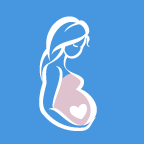Fertility Testing
Fertility Testing
We recommend you undergo several comprehensive tests, including ovarian reserve testing, hysterosalpingogram, transvaginal ultrasound, saline infusion sonogram (SIS) or fluid ultrasound (FUS), ovulation testing, hormonal testing, and semen analysis.
During female fertility work up and testing, we are first looking to see if her tubes are open. To check to see if the tubes are open, there are various work up options. One of the most common methods is an HSG, hysterosalpingogram. Dye is injected in the uterus and the results are yielded by an x-ray showing whether or not the dye is coming out the ends of the tube, meaning the tubes are open. If the dye does not come out of the ends of the tubes, then we see the problem.
Another option to detect whether or not the tubes are open is a laparoscopy. This procedure takes a scope and goes through a small incision and the doctors will be able to physically see whether the tubes are blocked or not.
As far as checking ovulation and hormone levels, Dr. Noel Peng will do certain blood tests that will measure the levels of progesterone, estrogen and LH, showing us whether or not the patient is ovulating and whether it’s regular.
There are many obstacles to fertility, including problems with ovulation, low sperm count, blocked or damaged tubes, and endometriosis. At IVF Institute, we will employ advanced fertility testing protocols to determine the cause(s) of our patients’ infertility and recommend the most appropriate treatment options.
When Is Fertility Testing Necessary?
Since infertility can be caused by a variety of factors, the fertility treatments that are most suitable for a couple can only be determined after the cause of their infertility is identified. Typically, we recommend that couples in which the female partner is in her twenties or early thirties try to conceive for a year before undergoing fertility testing. Women between the ages of 35 and 39 should be evaluated for infertility after six months of unprotected intercourse. Women at or after the age of 40 should be evaluated for fertility, especially ovarian reserve (egg supply) sooner.


